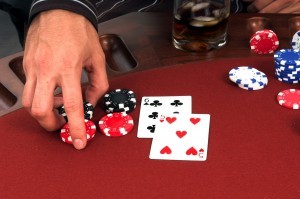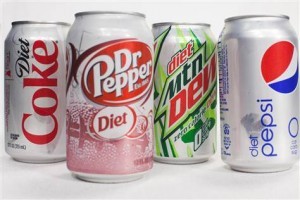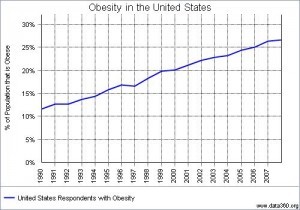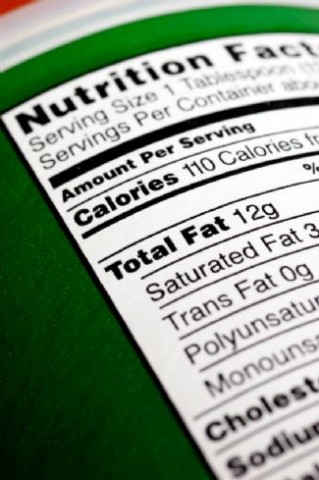Life is rarely a series of absolutes. There are few times when we always 'do this' or never 'do that'. Oftentimes an answer to a question from a client might be prefaced with 'it depends...'.And this is not meant to be a cop out. For example let's look at a few examples.If a young athlete asks if they should be taking a particular supplement the answer might begin with 'it depends'. How old is the athlete? What does their nutritional profile look like? Is the supplement being considered safe and effective? And are there other ways to achieve the same outcome by tweaking the athlete's eating habits before investing in a supplement?Or another client might ask if they should add sprints to their training program to enhance fat loss. Rather than a outright yes or no we might ask the client if they have any current joint pain or injuries. Sprinting puts exceptional stress through the feet-ankles-knees-hips and low back. An individual with current issues at these joints may realize additional pain and problems from an activity with high velocity and impact.Additionally we might want to know how this person moves? Have they already been doing some high speed running? How old is the client that is considering sprinting? What type of footwear and surface will they be sprinting on? And what other training will this individual be doing in the days prior and after some sprint training?In other words this is not Vegas and simply a condition of whether or not to double down on 11. It's not that cut & dry.[caption id="attachment_4530" align="aligncenter" width="300"] One of the few absolutes in life.Consider as well the notion to eat only protein and veggies.On the one hand this sounds very simple and possibly effective in terms of a healthy nutritional approach. By eating...
Diet Pop and Glucose Metabolism
This past weekend we had a birthday party for our daughter Olivia. And as with many parties like this there was food, cake and drinks. [caption id="attachment_4341" align="aligncenter" width="300"] What healthy people drink, right? Because we're all trying to do the best we can with our health we have diet pop as an offering. And I'm sure many of you are the same. If you drink pop you probably opt for the diet version, right? Not many health conscious people are buying regular Coke or Pepsi when they do the grocery shopping. So why do we choose diet pop? Well I guess it has to do with the fact that we don't want empty calories. I mean if I'm going to eat or drink something I better be getting some kind of nutritional benefit from it such as protein, healthy fat, vitamins, minerals, hydration etc. Regular pop offers virtually none of these but does have a dose of sugar, carbonation and is acidic. But besides avoiding the extra calories by drinking diet pop the other reason to avoid it was for the fact it wouldn't alter our blood sugar levels. In other words we didn't have to be concerned with the connection to type II diabetes and other metabolic disorders. Until now. A new study in the journal Nature found that consuming an artificial sweetener may impair glucose metabolism similar to that seen in type II diabetics. In the study researchers fed mice and humans one of three treatments, glucose, saccharin (the artificial sweetener) or glucose. You may be familiar with saccharin as the sweetener in Sweet N Low. Anyways, only the group fed saccharin showed altered glucose metabolism. So what is taking place that is accounting for this altered glucose metabolism? Well it appears that the mice and people fed saccharin...
The calories v. sugar debate
- Chris Collins
- Fitness
- Nutrition Advice
- 1670 Hits
- 1 Comment
-
So recently on the interwebs there was a bit of discussion on a social network about the importance of sugar in the diet. Actually it was more than just a discussion as some members took to mocking the other side who then responded to blocking the immature commenter from their profile.Now what that is all about was the fact that one group was of the belief that the increased consumption of sugar is the culprit of our deteriorating health i.e. obesity, metabolic syndrome etc. And the other side was dismissing the notion of sugar being responsible and favouring the opinion that increased calories were the root cause of society's declining health.A couple of points on this:1. This isn't religion and we don't need to get overly offended about the position of another individual or group based on what they believe with respect to nutrition.2. The two positions aren't mutually exclusive. Why can't we believe both positions? In other words isn't it possible that we are both eating more calories and eating more sugar today than we ever have in our history? It kind of seems like a silly 80s beer commercial.[caption id="attachment_4085" align="alignleft" width="300"] It doesn't have to be just one.So it is possible for both sides to be right. We are consuming more sugar than we have in our history and we are consuming more calories as well. The solution doesn't have to be one or the other in terms of reducing calories or reducing sugar. The answer should be both.And this is something we have been preaching to our clients for as long as I can remember. Actually I can remember as it was something I learned from an American colleague of mine at a conference in Colorado. You see as soon as I realized Shawn was a registered...
4 Reasons to Ditch Corn
- Chris Collins
- Fitness
- Nutrition Advice
- 1854 Hits
- 7 Comments
-
The other day I was talking to a client telling them they could accelerate their fat loss efforts by eliminating certain foods from their nutritional plan.And so I mentioned things like starchy carbohydrates (breads, potatoes, pasta, rice, cereals, grains), most drinks as well as food with corn.But as soon as I mentioned the word 'corn' this client stopped me. 'Really?' they said. 'I can't eat corn? Why not?' It's a vegetable and it comes from the earth.And herein lies the problem with some of the nutritional rules I have passed on to clients. Some are borrowed from others. Some are our own creations at Okanagan Peak Performance Inc. Now without going into the entire list here are couple of the rules:* eat as many vegetables as you like* foods from the ground, the ocean or a tree are good food for youJust considering these two rules we would all probably agree that these two rules would lead you in the right direction regarding a nutritional choice. Because corn is a vegetable that comes from the ground.So what's the big deal with corn? Why is it on the list of foods to avoid?I can see how this gets confusing. And the quick answer is to say there are exceptions to the rules. But that is kind of like a parent saying to a five year old 'just because' as part of suitable explanation.Well you aren't five years old and 'just because' won't cut it. We need better reasons than that to cut corn from the program. So with that in mind here are 4 Reasons to Cut Corn From Your Nutritional Plan.Reason #1 - Is It a Vegetable?The first thing to consider when it comes to corn is that depending on who you ask or what resources you use it may be considered a...
Bad Things Trainers Do - A Hint of Hypocrisy
- Chris Collins
- Fitness
- Nutrition Advice
- 1637 Hits
- 4 Comments
-
We live in a world where we can access professional advice for all areas of our life.We can consult with an investment advisor on the best ways to save for retirement. We can meet with an accountant about tax strategies that would benefit our business. And we can work with a strength & conditioning coach as to the best ways to achieve the results in the least amount of time.But what would you think if your advisor didn't follow the same advice they gave you? What if there was a case of 'do-as-I-say-not-as-I-do'?Recently there was an example of such an instance. At our facility. With one of our own coaches!After berating this poor coach for the better part of the day I said they would use this as an opportunity to explain why what they were doing was not good and what a better option would be.And this has lead to the birth of a new blog series called 'A Hint of Hypocrisy'. Every now and again your coaches and trainers will share with you some of the decisions they make which are contrary to the advice they try and drill into you on a daily basis.So sit back, relax and enjoy this inaugural installment of a Hint of Hypocrisy by Matt Baumeister.Hi everybody,Do you have a secret indulgence? I sure do, and I’m here to tell you all about it. But first, let me tell you about how it came about and why I love my treat so much. Can I get a drum roll please….everybody: my secret indulgence is Arizona Ice Tea. Why you ask? I love it simply because it reminds me of sitting on a beach with my good friends while basking in the hot Okanagan sun.While it’s true that we all have our little vices, I...
More on Chocolate Milk Post Workout
The other day I finished up a session with a client and we were talking about post-workout nutrition. And as we have chocolate milk for after your workout I offered one to this client. And she had a question regarding drinking chocolate milk. Specifically she wanted to know if it was ok to drink the reduced sugar version. Here's what I told her. After training the body is looking to begin the repair process and replenish metabolites that have been depleted. During training the body uses ATP as the energy source. Carbohydrates are a prime source for generating ATP during training. Some of the cards we eat are stored in the body in the form of glycogen in the muscle and liver. Anyways, it makes sense that after training we've depleted the body's source of glycogen and this needs to be replaced. If we eat only protein we won't have the necessary nutrients to replenish our store of glycogen. This is a common mistake some make with regards to their post-workout nutrition. They believe they need protein, which they do, but nothing else. There is also the belief that more is better and if 20 grams of protein in your post workout shake is good than 40 grams would be better and 50 or 60 grams would probably be best. But here's the thing. 20 grams of whey protein will get the job done. As will 6 grams of branched chain amino acids. Or 2 grams of the essential amino acid leucine. But we tend to follow label instructions on our favourite protein supplement which tells us a serving is 30-50 grams of protein. And the other protein is the lack of carbohydrate. And optimal post-workout formulation would have 3 or 4 times the amount of carbs as protein. A regular...
One Less Food for Better Health
- Chris Collins
- Nutrition Advice
- 1582 Hits
- 3 Comments
-
The body is a pretty amazing machine.It adapts to new environments. For example, in equatorial regions we develop more pigment to prevent burning. And in arctic regions we retain more bodyfat for insulation against cold weather.It responds quickly and measurably to stimuli. For example, step on a tack and you will reflexively flex the knee and or hip to pull away from the source of the pain. Or if you cause damage to the soft tissues of the body, which help to maintain strutural integrity, we will get an inflammatory response to provide more stability to the injured body part.For everything we subject our bodies to there is a reaction. Sometimes the reaction is obvious and external which allows us to take notice and make the connection. Falling asleep in the hot sun on vacation may result in a sunburn which is easy for us to recognize and connect the dots as to why we got burned.Other reactions in our body are harder to perceive.They may not be as immediate.Drinking 2 cans of soda a day as a young person may eventually lay the foundation for future diabetes issues. But at the time it is difficult to recognize the damage we are doing.I guess it's kind of like being a baby.We are not able to communicate our needs except through crying. And unless something is painful, such as a dirty diaper or hunger pangs, we may not cry at all, giving the impression that everything is alright.But absence of pain doesn't mean everything is alright.We can be putting stress and doing damage to our tissues and organs without even realizing it.How can this happen?Well as long as we can 'get away' with a lifestyle or habit there is no reason to change it, is there?However when we discover there is a problem we always...
More Reasons to Reduce Your Sugar Intake
- Chris Collins
- Nutrition Advice
- 1658 Hits
- 4 Comments
-
I remember growing up and my parents were following one of the low fat diets of the day. One of the ones that comes to mind was the Scarsdale Diet. Anyways this diet, and a number of others, recommended that for the best health we needed to reduce our intake of fat. Particularly saturated fat. And so we stopped eating egg yolks. And we cut back on our consumption of animal fat. Or we eliminated animal products altogether and became vegan or vegetarian. By we I mean society in general and not me personally. What have the results been? Obesity has more than doubled in the USA over the last 20 yers. But about our internal health? Have we become sicker as well? Take a look at the graph below which shows the changes in diabetes over the years. And below we can see the increase in sugar consumption over the past 80 plus years. So fat may not be the culprit we thought it was. Sure it has more than double the energy of carbohydrates and protein. But I've tried to drive home the point that a calorie is not a calorie many times before. Any five year will tell you eating 1 lbs of broccoli is not the same as eating 1 lbs of cotton candy. However many still cling to the belief that a caloric deficit is all that is needed to drop unwanted bodyfat fat. But is sugar really that bad? Consider the following research just coming out. Dr. Cantley, a cell biologist and biochemist, has recently shown that cancer cells have insulin receptors just as muscle, fat and liver cells do. So when we eat sugar these receptors are able to receive the sugar flowing through our blood and supply the energy to grow the tumour. And it appears the...
The 7 Best Ways to Deal with Cravings
- Chris Collins
- Nutrition Advice
- 1923 Hits
- 6 Comments
-
So I have to ask...do you crave salt or sweet?For me it's salt. I like artichoke hearts, some cheese and peppers on stoned wheat thin crackers.Lame! You're probably thinking. What about the nachos, wings, pizza and burgers? Yeah I like those too but I don't really crave them.And once in a while I might have a diet coke with lunch or some chocolate when we go to a movie.Ok now I've got half of drooling thinking about all these snacks. So how do we deal with cravings? How do take foods that should be once in a while and make sure they don't become daily rituals? Well below are the Best Ways to Deal with Cravings.#1 - Get it off-siteIf something is bad for you don't want it anywhere near you. Think about the fuss people make about nuclear reactors, power lines or any other type of waste or contaminant. NIMBY is the common response.So how come we are so casual about the poisons we stock in our fridge and pantry? I'm talking about the high sugar, high fructose corn syrup and processed foods that we buy and stock at home.Make it a lot harder to resist the urge and indulge but refusing to have the stuff in the home. On the rare occassions you are going to indulge, go out for a treat.#2 - Put delays in placeUsually there is a time factor to our cravings. And these can be more psychological than physical. With a bit of a delay there is the chance the craving will pass.Smokers trying to quit are told to store their papers, tabacco, cigarettes and lighters in different locations. Chronic shoppers put their credit cards in a glass of water in the freezer.By creating a diversion or delay in satisfying the craving there is the possibility...
Interview with International Gluten/Celiac Disease Expert
- Chris Collins
- Nutrition Advice
- 1763 Hits
- 4 Comments
-
Recently I was down to Las Vegas for some meetings, lectures and networking. In between our meetings I had the chance to track down Dr. Peter Osbourne for a quick interview on gluten and celiac disease.In the interview I ask Dr. Osbourne a number of questions including:1. What is gluten?Dr. Osbourne defines gluten as a poison for certain individuals that when they eat it this causes an immune system reaction. This reaction causes a host of problems of up to 140 auto-immune diseases.2. What foods trigger a response or reaction to gluten?Gluten is found primarily in grains such as bread, pasta and cereal.3. Is it possible that some people have celiac disease and may not even know it?Lots of people have gluten sensitivity but have been misdiagnosed and don't know why they are sick. In terms of celiac disease there are an estimated 2 million people that are 'silent celiac' meaning they are asymptomatic and have the disease but won't find out until their fourth decade when the symptoms really start to set in.I ask him a couple more questions but you'll have to watch the video to see what they are.At the end of the interview Dr. Osbourne shares with us his website and facebook fan page. Make sure to watch for this information and contact him for more resources or to inquire about being tested for gluten sensitivity.Are you gluten sensitive?Do you have celiac disease?Do you have reactions to certain foods where the cause hasn't been diagnosed yet?Post your answers in the comments section below.Chrisokanaganpeakperformance.com 'always moving forward'
Serious About Weight Loss? Stop Reading Food Labels!
- Chris Collins
- Nutrition Advice
- 2305 Hits
- 35 Comments
-
I might be contradicting myself here but it's got to be done.'How so?' you might be saying to yourself.Well for a while I was encouraging you to do something nutritionally that I believed was in your best interests. That would give you better results related to weight loss and performance.But maybe I was wrong. (said in a whisper so no one can hear me)What it is that I had you doing was reading food labels. So how can this be a bad thing? Why would I suggest you stop doing so? Well for three reasons.Reason #1 to Stop Reading Food Labels - You are being misledI wouldn't go so far as to saw you are being lied to but consider the following titles on food packages:'made with real sugar''all natural''organic''95% fat free'So how are these titles on packaging misleading? Well there really is no benefit to eating real sugar. It still causes an insulin spike and puts the break on your fat burning.What about 'all-natural' and 'organic'? Well just because something occurs naturally doesn't mean it's healthy and a good idea to put it in your mouth. Heck, in the case of arsenic, it can kill you.And organic, well often times this is marketing-hype imo. If you eat organic for environmental reasons, do organic bananas leave a smaller organic footprint to ship to Canada than regular bananas?Reason #2 To Stop Reading Food Labels - It's less about the caloriesAsk most people what they check when they read a food label and what is the most common answer? Calories. We still believe, incorrectly, that a calorie is a calorie and we simply need to create a deficit or surplus in order to have the best results.The truth is that it's probably more important to consider the quality and timing of your food selections rather than the calorie count....
5 Things I Can Do Better to Improve My Health & Performance
- Chris Collins
- Fitness
- 1746 Hits
- 5 Comments
-
If you're serious about your health and performance than you want to know that you're doing the best you can with your efforts. And if you're not where you'd like to be weight-wise, performance-wise or in terms of your rehab than there are probably some things you could be doing a better job of. And if you are having some success in these areas than you are probably motivated to see what else you could do to ramp up your results even more.I'll be honest...I know I could do more personally. A while back I stated some of my goals. A few of them included hitting targeted strength measures, improved fitness levels and a specific scale weight.And while I'm on track to hit my goals I know I could be further along. I know I maybe under-estimated myself by selecting goals I knew I had a pretty good chance of attaining.There's not a problem in doing that. But we want to make sure we are giving our best effort and setting new goals if necessary.So while I'll probably wait until I realize the current goals I've set until I pick new ones there are a few things I know I can improve on until then. With that in mind here are 5 Things I Can Do Better to Improve My Health & Performance.1. Improved sleep - I need 8 hours of sleep a night. Not 8 hours of bedtime on my computer, reading or doing sudoku puzzles but 8 actual hours of sleep. I need to make sure that I get as many of these 8 before midnight as possible. And I need to make sure to be as consistent with my time to bed and time to rise as possible.2. More soft tissue work - Every workout should begin with some foam...





